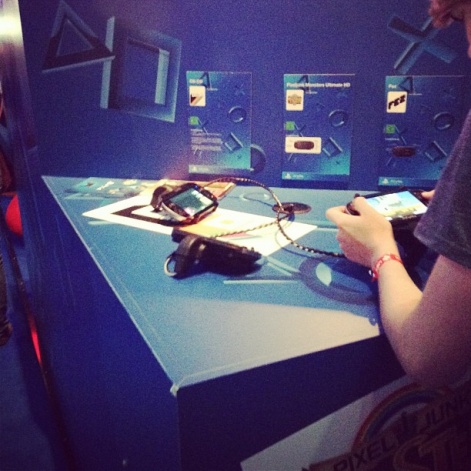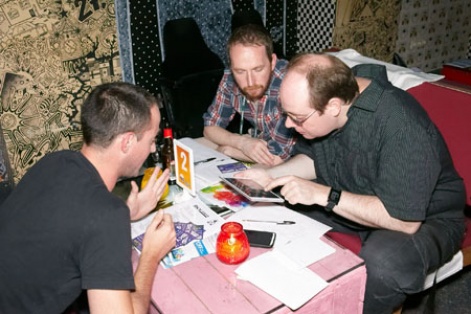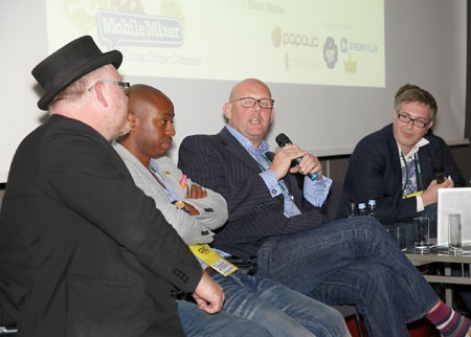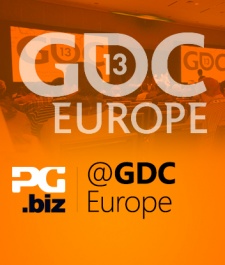Yes, given GDC Europe piggybacks the event some claim has surpassed E3 as the industry's biggest, you might think that there would be twice the number of takeaways from our time in the city that straddles the Rhine.
In truth, however, both Gamescom and GDC Europe delivered a refined set of lessons. Focused. Narrow, even.
But, just because haven't come away with a rush of different thoughts buzzing around our head doesn't mean there isn't plenty for the industry to chew over. Indeed, as the points below prove, the smaller number only helps make the takeaways highlighted all the more powerful.

The Asian invasion needs a helping hand
In the west, we may think the biggest issue in terms of the Asian market is how we can get a slice of it.
A few minutes walking around the Chinese, Taiwanese and Korean pavilions in the business area at Gamescom, however, proved that just as many Asian outfits are looking to make a mark in Europe and the US.
So, what are they waiting for? A western publisher to help them out, it would seem. Mobile developer after mobile developer told us that, while they're confident they can handle things across Asia, few are comfortable going it alone in Europe or the US.
Indeed, every single developer we spoke to in all three pavilions told us that a publisher with influence in and knowledge of western territories is what's required if they're to look to replicate their Asian success in outside markets. Any takers?

The UK rules the roost in Europe
Given both GDC Europe and Gamescom were hosted in the same venue in the beautiful German city of Cologne, German developers naturally had a strong presence at both events.
Gamescom was also sponsored by France yes, apparently the whole country with banners promoting the country's role in the industry. Yet it was neither Germany nor France that ruled the roost along the Rhine. It was the UK.
While most of the regional stands in the business area at Gamescom focused simply on grouping prominent developers and businesses together in one set area, the UK's stand organised by UKIE took a more original approach, recreating the British countryside with park benches, a post box, and servings of cream teas and mustard-ladened sausages.
Its prominent position on the show floor almost flat bang in front of the entrance to the hall also meant that it was a hive of activity throughout Gamescom's run.
Got five minutes to spare and looking for a quick cup of coffee or a friendly face? Chances are, you walked straight to the UKIE stand.
Without a hint of home bias, UKIE's British stand stood head and shoulders above the rest.

Sony's indie push has a hollow heart
Attendance numbers for Gamescom this year were apparently at record numbers.
Indeed, having made my way through the queue myself on Thursday afternoon after a mistaken trip to the airport (I can't be the only one who has mistakenly attempted to board a flight a day early), I can vouch for the lines of people attempting to make their way into Cologne's Koelnmesse being something approaching the astronomical.
The reason? Likely the pending next-gen console war between the PlayStation 4 and Xbox One. Predictably, then, Sony's sizeable stand was dominated by the firm's forthcoming machine, pushing PS3 and alarmingly PS Vita to the sidelines.
Indeed, given Sony has made much noise about its efforts to woo indie developers (largely in the face of Microsoft's earlier silence on the issue), it was somewhat strange to see a machine it already has on the market equipped with an 'indie store' left hanging.
On the two walks I had around Sony's stand at Gamescom, PS Vita's running indie titles were left off to the side on empty tables with nothing but a small label alerting the passing crowd as to just what game they were running.
On the second walkaround on the Thursday morning, some units didn't appear to be switched on.

Naturally, PS4 was always going to dominate Sony's focus at Gamescom this year, but given the amount of noise it's been making about its apparently honourable move to make PS Vita an indie outpost, to see it drop it like a stone as soon as its priority looms into view is worrying for any indie whose future depends on the Japanese giant.

Mobile's vibrancy continues to outshine the rest of the industry
Midway through GDC Europe's run at the start of the week, some of the mobile scene's most talented journalists and me headed to Cologne's Die Kunst Bar to sample a near thirty new releases from indie outfits from across the continent.
With each pitching to two journalists at a time in a set five minute slot, the pace was fast, the games on offer especially varied, and the alcohol consumed copious.
What was most striking about the games thrust into our faces, however, was the fact that no two were the same. Not even close.

Each and every title on offer was distinctly different from all the others from a slick and sleek colour matching multiplayer to a 'slash them with your finger' oriental style fighter, complete with a kill counter that questioned your actions, rather than celebrated them.
There was even a traditional FPS. Every type of consumer and every kind of genre was catered for. More importantly, I could count the number of genuinely poor games seen on one hand. Hell, maybe even just a couple of fingers.

Developers don't want a third platform
Many an article on PocketGamer.biz has been spent evaluating just what platform Windows Phone or BlackBerry 10 will come out on top in the race for third place.
However, based on our Mobile Mixer in Cologne last Monday night, the appetite for a third player in the smartphone and tablet market is pretty weak.
No-one wants one company the dominate the general take being competition helps keep the big boys in check but the need to support a third platform sporting a sizeable userbase is not one many developers are too keen on.

Hell, even one of the bigger outfits Sega which already supports both Windows Phone and BlackBerry with notable releases was anything but glowing about the prospect of doing so longterm.
It's a trait that falls back on the one quality almost all mobile developers are looking for: stability. Everyone wants a sense of consistency they want to know, day in day out, where their bread is buttered, and that they don't need to constantly go around the houses to find a player base.
Problem is, mobile isn't very consistent. Ever since the smartphone surge took off 5 or so years ago, all mobile has done is evolve and evolve at quite some pace.
There many only be two big players to speak of right now, but chances are things will change in the years ahead. Change is what this industry does best.

















